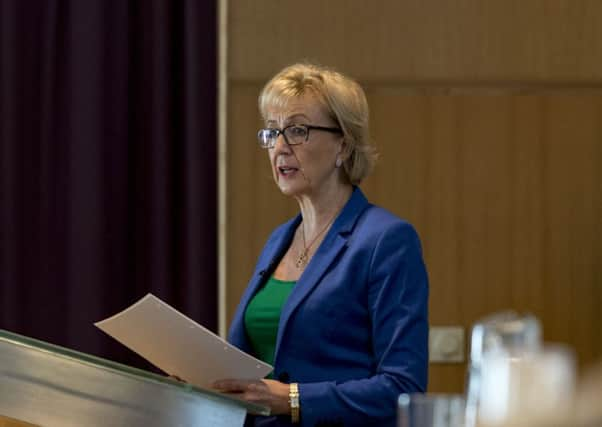Government seeks TB-free status for the North


Dealing with bovine TB costs the country’s taxpayers more than £100m a year and in 2015 led to 28,000 cattle being culled.
Gaining OTF status for the low risk area, covering the north and east of England - including Yorkshire - would boost trade opportunities and mean some herds require less regular TB testing, reducing costs for farmers, Andrea Leadsom said.
Advertisement
Hide AdAdvertisement
Hide AdIf the Government’s application is successful, it would be the first time anywhere in England has enjoyed Officially TB-Free status since the 1960s and it is expected that the move would make beef exports from the UK more attractive for trade partners around the world.
Mrs Leadsom said achieving this status for the low risk area is a key step in the Government’s 25-year plan for the whole of the UK to be TB-free by 2038.
The Environment Secretary said: “Gaining global recognition that more than half of England is TB-free will be a significant milestone in our long-term plan to eradicate this devastating disease, and will open up new trading opportunities for farmers.
“We have much still to do in the worst affected parts of the country, but this shows that our strategy - combining practical biosecurity measures, a robust cattle movement and testing regime, and badger control in areas where the disease is rife - is right and is working.”
Advertisement
Hide AdAdvertisement
Hide AdMeurig Raymond, president of the National Farmers’ Union, said the announcement was a welcome boost for beef and dairy farmers in Low Risk areas.
“Gaining this status for the north and east of England ahead of schedule shows that the Government’s comprehensive 25-year strategy is having an impact,” Mr Raymond said.
“If we are to achieve what everybody ultimately wants – a TB free England – it is vital that all elements of this strategy are implemented in full in the areas of the country where they will have most impact.
A report published today by the Department for the Environment, Food and Rural Affairs states that the latest badger culls in the South of England have been a success.
Advertisement
Hide AdAdvertisement
Hide AdCulls in 2016 have focussed on two areas of Cornwall, two areas of Devon, two areas of Dorset, two areas of Gloucestershire, and one area each in Somerset and Herefordshire.
The Defra report states: “The results from 2016 indicate that all ten badger control companies have delivered the level of badger removal required to be confident of disease control benefits and that the operations were carried out to a high standard of public safety.
“The levels of controlled shooting accuracy achieved in this year’s operations were similar to those in the previous three years. The likelihood of suffering in badgers is comparable with the range of outcomes reported when other control activities, currently accepted by society, have been assessed. Licensed farmers and landowners will need to continue to ensure that their contractors receive rigorous training to maintain high standards of effectiveness, humaneness and safety.”
New measures have been announced today as part of the government’s ongoing strategy to eradicate bovine TB.
Those measures include:
Advertisement
Hide AdAdvertisement
Hide AdWider use of blood tests alongside the current skin test in the high risk area to provide a more sensitive testing regime in TB affected herds, minimising the risk of leaving infected animals in herds;
A plan to introduce new, more coherent powers to manage the TB risk in pigs, sheep, goats, deer and camelids, to bring them more in line with cattle controls. This will include new statutory compensation arrangements for these specie;
And, more frequent updates to the ibTB online tool which allows farmers to view TB outbreaks close to their farm. From early in 2017 the data will be refreshed every fortnight rather than every month.
The Government’s chief veterinary officer Nigel Gibbens said: “This year we have seen that badger control can be delivered successfully on a wider scale. Further expansion in the coming years, alongside our robust cattle movement and testing regime, will allow us to achieve and maintain long term reductions in the level of TB across the South West and Midlands where the disease is currently widespread.”